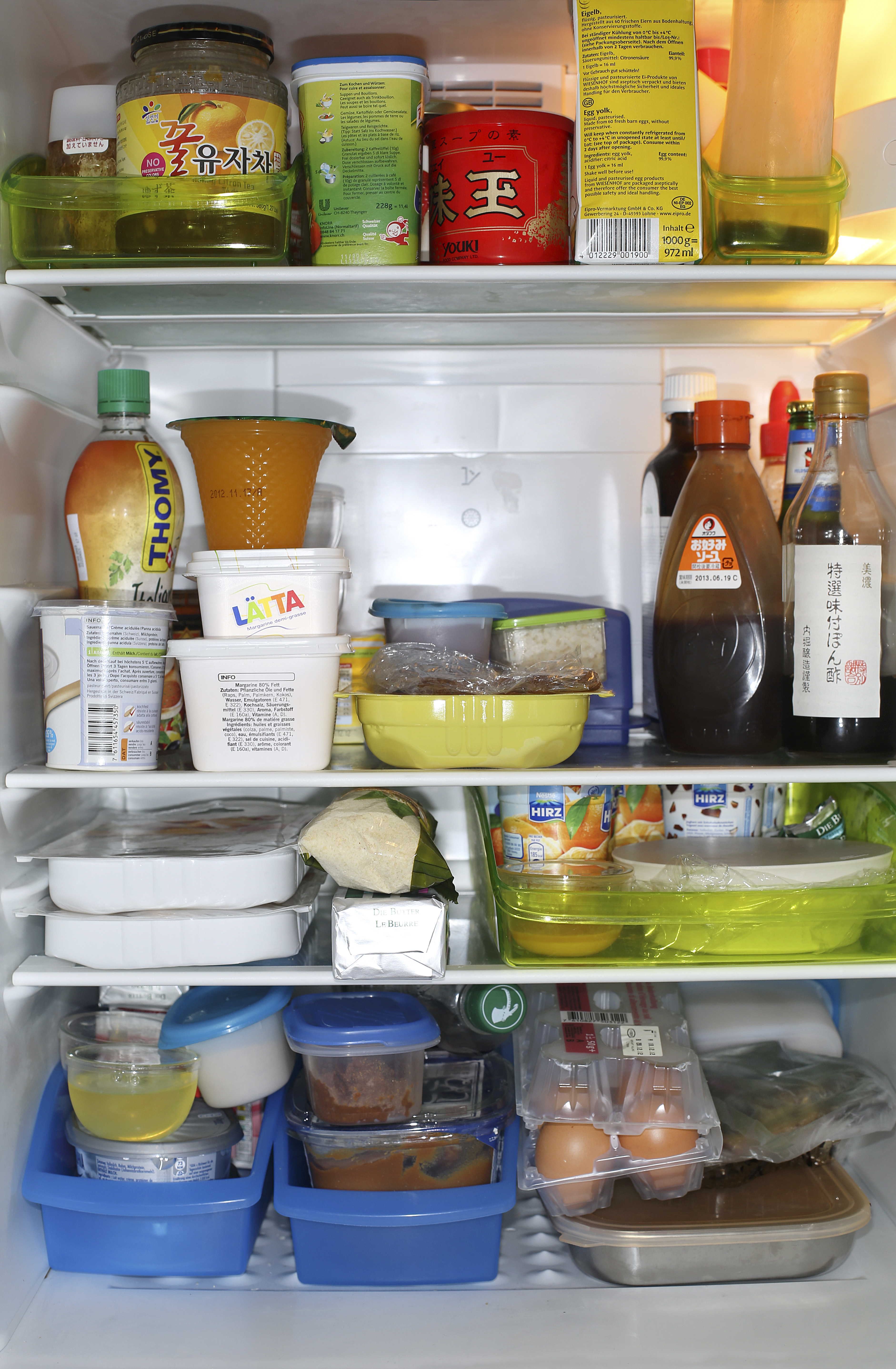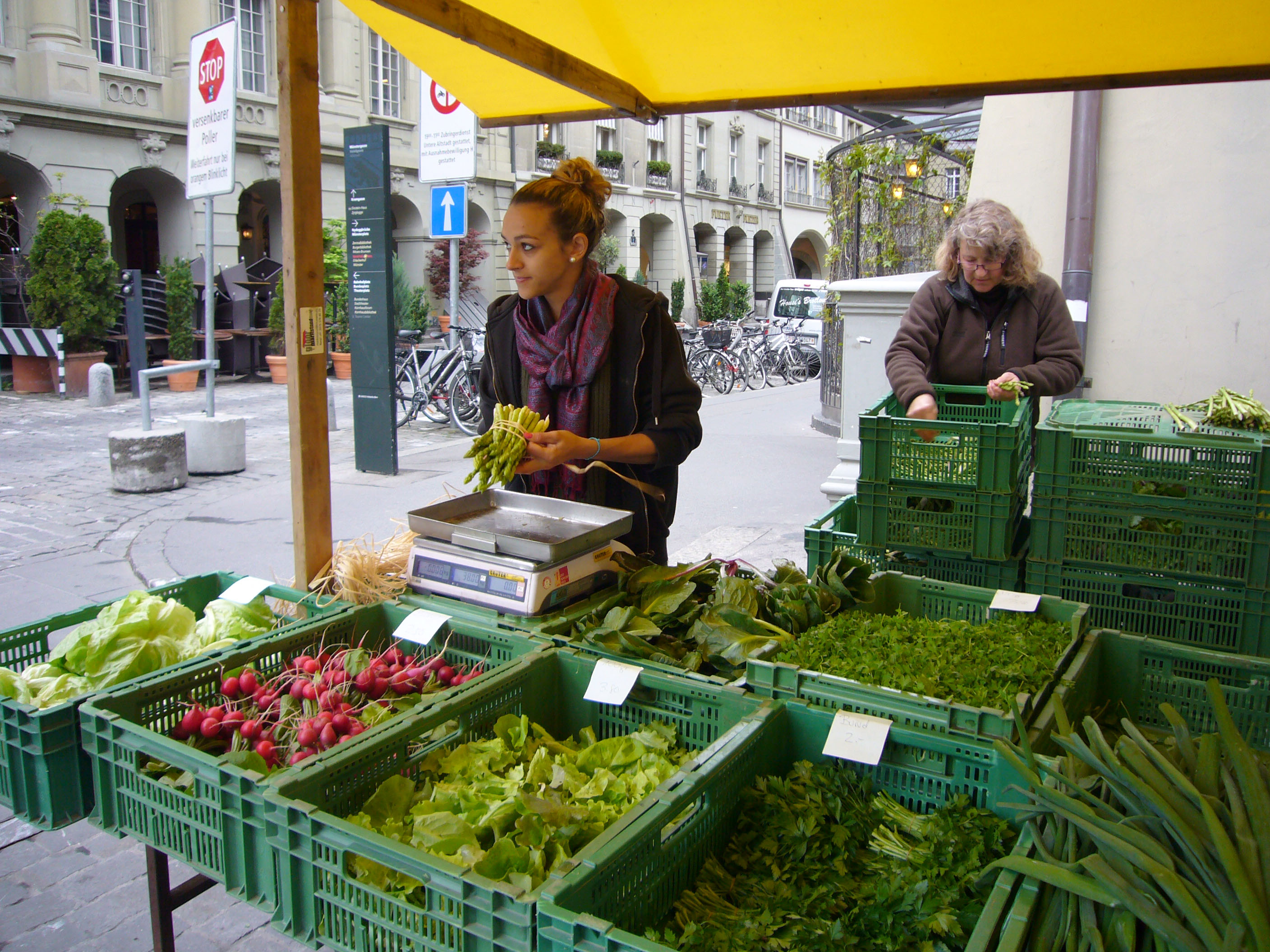Too much food going to waste

About a third of all foodstuffs produced are lost between the farmer’s field and the consumer’s table. In Switzerland, huge amounts end up in the garbage. It’s a crying shame, says an environmental group that is calling for widespread action.
There are estimates, but no reliable figures for how much food actually goes to waste in Switzerland. Claudio Beretta, a research associate at the Federal Institute of Technology in Zurich and president of the group foodwaste.ch, devoted his master’s thesis to an examination of 43 companies in the food industry and a review of international data.
His findings: here as in other industrialised countries, about 30 per cent of the available goods go to waste at some point in the food supply chain. Nearly half of them are thrown away by consumers themselves.
According to figures from the UN Food and Agriculture Organisation (FAO), 30% of foodstuffs produced are discarded or allowed to go bad every year. That adds up to 1.3 billion tonnes of food produced in vain.
In the EU countries about 90 million tons end up in the garbage; that is, about 280 kg per person per year. In Switzerland the annual wastage of foodstuffs is estimated at around 1-2 million tonnes.
As much as 20% of the wastage occurs in the agricultural sector (harvest losses, discarded goods), another 40% in the course of transportation, trade and processing, and about 40% at the hands of the consumer.
swissinfo.ch: A century ago Swiss households spent 40 to 50 per cent of their income on groceries; today it’s only six to eight per cent. Are food products just too cheap these days and are they less valued because of this?
Claudio Beretta: That is one important reason. In developing countries, people cannot afford to buy more than they actually need.
Regarding whether foodstuffs are too cheap or not, there is some disagreement. But there is definitely something wrong when environmental costs that arise from food production are not included in the price. If they were, most groceries would be more expensive.
When you consider the amount of resources and labour required to bring foodstuffs to the table, it’s frightening to think of how much consumers actually throw away.
swissinfo.ch: Not only spoiled food is being thrown away, but also food that could still be consumed. Why does that happen?
C.B.: The fact is that a lot of consumers cannot tell whether food items are still edible or not. They just go by the expiry dates printed on the package. That’s one part of the problem, because many food items are still good to eat after the expiry date.
But again, consumers tend to confuse “use by” dates with “best before” dates. The “best before” date just guarantees top quality of the food item from the manufacturer’s point of view. It doesn’t mean that, afterwards, the food item is unhygienic. People need to learn to trust their own senses again.

More
Open door policy – for fridges
swissinfo.ch: Waste occurs not only in the grocery trade and in the consumer’s home, but also on the farm. Farmers throw out items that don’t meet the standard in terms of size, shape, weight and colour. Do these quality requirements really have anything to do with the needs of the consumer?
C.B.: That’s not an easy question to answer. Are the goods being selected in such a way that the consumer no longer has the choice to buy crooked carrots in the grocery store? Or are the customers just not buying the crooked ones, so that it is no longer worth the supermarket’s while to offer them for sale?
Whatever the answer is, these high aesthetic standards are a result of our society’s affluence. Regrettably, many consumers have forgotten how to judge the real quality of food items.
Mistaken ideas about food quality have a considerable effect, both with regard to the efficiency of the whole food supply chain and the ensuing losses, and the fact that many perfectly good food items go to waste.
The high quality standards are certainly exaggerated, considering that a seventh of the world’s population is permanently undernourished.
This year the FAO has appealed for collective action on stopping the waste of food.
The European parliament is calling for more careful handling of foodstuffs, and a halving of the amount of food discarded by 2025.
According to information from the UN, there are about 870 million people worldwide suffering from chronic malnourishment.
swissinfo.ch: Where do you see a connection between waste in industrialised countries and poverty in the Third World?
C.B.: I see two main connections. Between 40 and 50 per cent of foodstuffs that we consume here in Switzerland are imported, including from countries where there is famine. The greater the demand here, the more the foodstuffs are lacking there, where they are really needed.
I see another connection as regards world market prices: the greater the demand for food items in the industrialised countries, the higher the prices. That means that many people [elsewhere] can no longer afford to consume enough calories and nutrients.
swissinfo.ch: In the fight against food waste the United Nations and European Union are calling for collective action. What measures could really help?
C.B.: The main thing I’ve come to realise is that all the participants in the food supply chain play a role, and the major waste is the sum of a whole lot of smaller problems. Many different measures are called for. We need to reach every participant in the process, which takes individual communication and a lot of time.
Education is important too: economics classes should include environmental perspectives to increase awareness that small everyday decisions can have a cumulative effect.
(Translated from German by Terence MacNamee)

In compliance with the JTI standards
More: SWI swissinfo.ch certified by the Journalism Trust Initiative


You can find an overview of ongoing debates with our journalists here. Please join us!
If you want to start a conversation about a topic raised in this article or want to report factual errors, email us at english@swissinfo.ch.